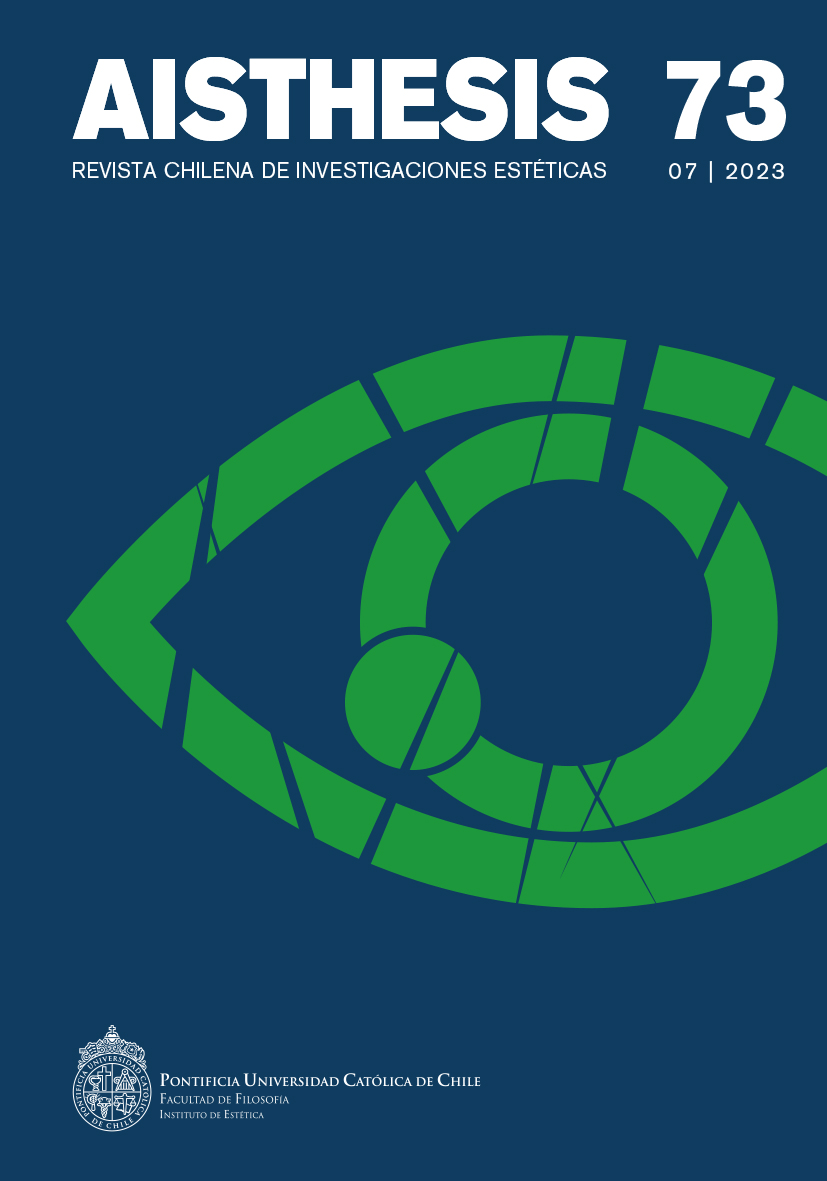En torno a la narcoimaginación, sus paradojas históricas y figuraciones contemporáneas
Main Article Content
Abstract
The text offers a comparative conceptual reflection on the culturally and historically different formations of narratives and literatures, in which the representation of either drug conflicts or the impact of psychoactive substances toward consciousness alteration play a major role. The notion of a Western psychoactive modernity is presented as a framework in order to historicize and thus distinguish a contemporary Latin American narcoimagination from Western European narcoliteratures.
Downloads
Article Details

This work is licensed under a Creative Commons Attribution-NonCommercial-ShareAlike 4.0 International License.
All contents of this electronic edition are distributed under the Creative Commons license of "Attribución-shareAlike 4.0 Internacional" (CC-BY-SA). Any total or partial reproduction of the material must mention its origin.
The rights of academic works published in this publication belong to their authors., who grant to AISTHESIS: Revista Chilena de Investigaciones Estéticas the license for its use. The management of the permits and the authorization of the publication of the images (or of any material) that contains copyright and its consequent rights of reproduction in this publication is the sole responsibility of the authors of the articles
References
Referencias
Courtwright, David. Forces of Habit: Drugs and the Making of the Modern World. Harvard University Press, 2001.
DeGrandpre, Richard. The Cult of Pharmacology: How America Became the World’s Most Troubled Drug Culture. Duke University Press, 2006.
Herlinghaus, Hermann. «Zur neuen Krise der kosmopolitischen Imagination». Berlin, Paris, Moskau: Reiseliteratur und die Metropolen. Eds. Walter Fähnders, Nils Plath y Hendrik Weber. Aisthesis-Verlag, 2005.
––. Violence Without Guilt: Ethical Narratives from the Global South. Palgrave Macmillan, 2009.
––. Narcoepics: A Global Aesthetics of Sobriety. Bloomsbury, 2013.
––. «Towards a Cultural Pharmacology». The Pharmakon: Concept Figure, Image of Transgression, Poetic Practice. Universitätsverlag Winter, 2018.
––. «On the Concept Figure of the Global South». Remapping World Literature: Writing, Book Markets and Epistemologies Between Latin America and the Global South. Eds. Gesine Müller, Jorge Locane y Benjamin Loy. De Gruyter, 2018.
Kennedy, Joseph. Coca Exotica: The Illustrated History of Cocaine. Fairleigh Dickinson University Press/Cornwall, 1985.
Lemus, Rafael. «Balas de salva: Notas sobre el narco y la narrativa mexicana». Letras Libres, sept. 2005, pp. 38-42.
Lenson, David. On Drugs. University of Minnesota Press, 1995, pp. ix–xi.
Mead, Margaret. Culture and Commitment: The New Relationships Between the Generations in the 1970s. Anchor Press, 1978.
Metzl, Jonathan y Anna Kirkland, editors. Against Health: How Health Became the New Morality. New York University Press, 2010.
Parra, Eduardo Antonio. «El lenguaje de la narrativa del norte de México». Revista de Crítica Literaria Latinoamericana, nº 30, 2004, pp. 71-77.
Quaas, Lisa. Narkoprosa. Darstellungsparadigmen und Erzählerische Funktionen in der lateinamerikanischen Literatur zum Drogenhandel. De Gruyter, 2019.
Snow, C. P. «The Two Cultures». C. P. S., The Two Cultures and the Scientific Revolution. Cambridge University Press, 2012 [1959].
